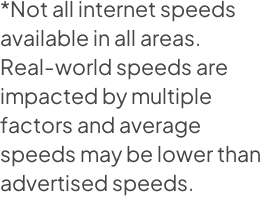Internet Providers in Galion, Ohio
Filter by zip:
Home Internet in Galion, OH
Best Internet Provider In Galion, OH
The residents of Galion, Ohio can choose between Spectrum, Viasat Internet, and Hughesnet as their top three internet service providers. Spectrum, with cable and fiber connection options, offers a maximum download speed of up to 1 Gbps. At a monthly rate of $49.99, Spectrum presents a mix of affordability and speed, covering roughly 81% of the city. For those who need high-speed internet for activities like online gaming, streaming videos or using multiple devices at once, Spectrum's plans prove to be beneficial.
Satellite connections offered by Viasat Internet and Hughesnet cover the entirety of Galion, offering service to even the least accessible parts of the city. This availability makes them perfect for residents in areas cable or fiber networks can't reach. Viasat provides download speeds up to 50 Mbps, while Hughesnet makes available speeds up to 25 Mbps, both for a starting monthly price of $49.99. Despite their speeds being lower than what Spectrum provides, both are reliable internet options for simple tasks such as browsing the web, checking emails, and using social media.
Through the 100% satellite coverage by Viasat and Hughesnet, 81% cable coverage by Spectrum, 25% DSL, and 57% fixed wireless availability, the city of Galion has a vast range of service options to match every resident's specific internet needs and geographical location.
Internet Provider Store Locations in Galion
Internet Providers in Nearby Cities
Are you a journalist or researcher writing about this topic?
Contact us and we'll connect you with a broadband market expert on our team who can provide insights and data to support your work.













